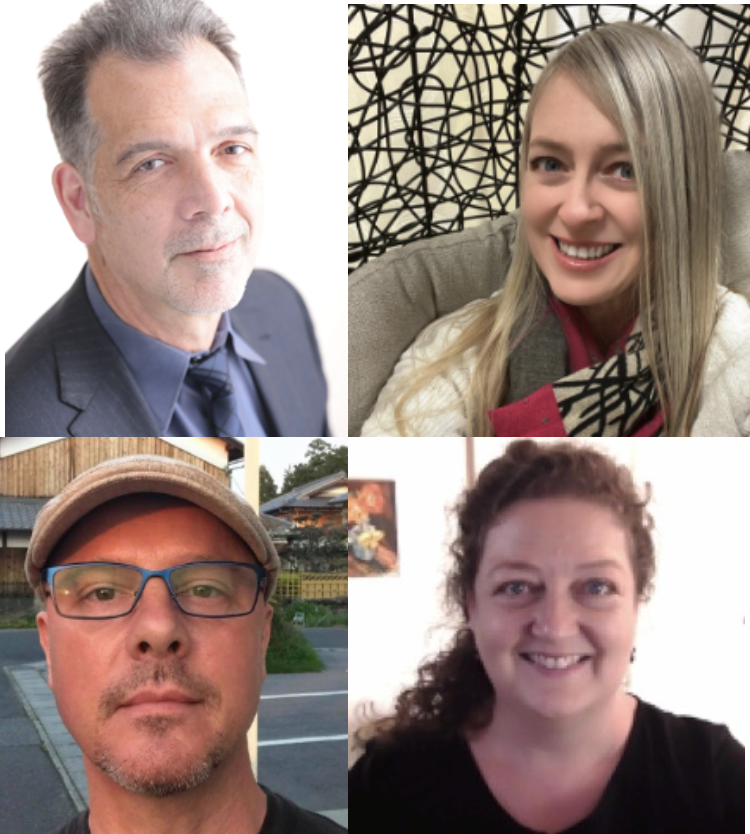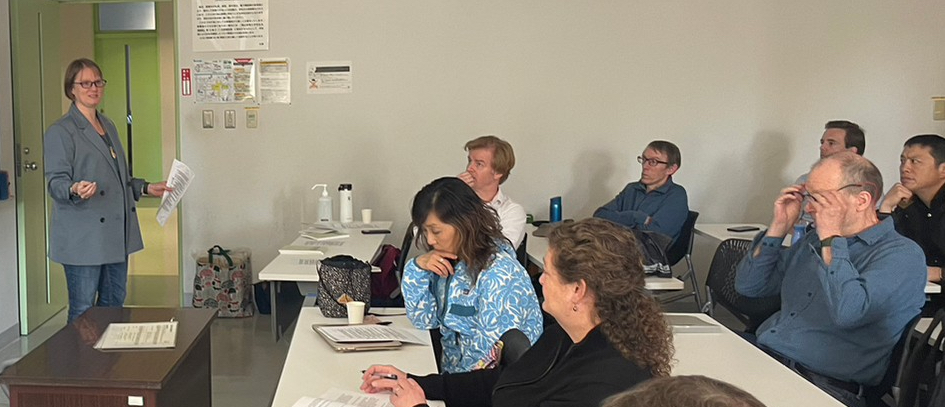At the PanSIG Conference to be held on May 24th – May 26th, 2024 at the Fukui University of Technology in Fukui City we will be holding a forum by a distinguished panel of speakers on this topic: Sadly, due to competing responsibilities, Eric Kane will not be able to join the panel. So, the time for his part of the forum will be redistributed to Mary Nobuoka, Charlie Browne, and Louise Ohashi.
Fostering a Sustainable Language Learning Community
In the midst of rapidly advancing AI technologies and pressing global challenges, the future appears increasingly uncertain, prompting widespread global discussions. This societal ambiguity can instil anxiety and confusion, particularly among the younger generation. It underscores the vital role of education and educators as guiding lights during such times. Our language-teaching communities find ourselves in a pivotal and transformative era, endeavouring to establish a sustainable and vibrant language-learning community. This vision emphasizes respecting the learner as an agent, fostering curiosity, and promoting well-being. Achieving this objective requires a multidisciplinary approach, urging educators from primary school to tertiary levels to adopt cutting-edge approaches across various academic fields in language teaching. The collaborative discourse aims to shape a sustainable language-learning community for the future.
The speakers will include:
- Ms. Mary Nobuoka: Practices for teachers to build their own wellbeing and interpersonal communication skills in the language-learning classroom
- Dr. Louise Ohashi: Introducing AI-supported tools and tasks in the language classroom and for self-study
Mr. Eric Kane: Independent Together – We are Not Alone- Dr. Charlie Browne: Creating open-source and free resources to help students interact with authentic materials without the need for dictionaries or teachers

Individual contributions to the LLL-SIG Forum at PanSIG 2024:
Mary Nobuoka
Title: Practices for teachers to build their own wellbeing and interpersonal communication skills in the language-learning classroom
Affiliation: Keio University
Synopsis: Research shows that screen time is affecting students’ attention spans and moods. The classroom is a place that could help introduce ways to bring balance into the students’ lives. This put-your-own-oxygen-mask-on-first section of the panel discussion will introduce practices for teachers to build their own wellbeing and interpersonal communication in the language-learning classroom. First, Martin Seligman’s PERMA model for building well-being will be shared, then active listening skills, and finally breathing to reduce anxiety and increase mindfulness. By incorporating these research-based activities into their classes, teachers can set their students up for success and help them develop key skills and attitudes that will serve them well in school and in life.
Bio:
Mary Nobuoka has been teaching English and academic skills in Japan since 1994. Over the past 15 years, she developed a course based on soft skills (e.g, goal-setting, time management, interpersonal communication and well-being). Besides her teaching positions at Keio, Waseda and Aoyama Gakuin Universities, she is a life-long learner and practitioner of building wellbeing and resilience in life.
____________________________________
Eric Kane
Title: Independent Together – We are Not Alone
Affiliation: ELF Learning
Synopsis:
Teaching and other educational endeavors can sometimes make us feel isolated and alone. That’s especially true when we don’t have a network of caring, compassionate, and collaborative people in our circle.
Over the past several years, the speaker has made efforts to expand his circle by hosting and organizing events to support language school owners and small, independent publishers. These events have been unaffiliated with more established teaching-related organizations but have nonetheless been successful and quite enjoyable. In this forum, the speaker will discuss the events in more detail and introduce some technologies that have allowed the participants to expand their circles by bridging distances.
Bio:
Eric Kane is a teacher, school owner, small publisher, and educational YouTuber who has lived and worked in Japan for long enough to remember Namie Amuro’s solo debut.
____________________________________
Louise Ohashi
Title: Introducing AI-supported tools and tasks in the language classroom and for self-study
Affiliation: Gakushuin University
Synopsis: AI can aid language development in a multitude of ways, but the recent influx of tools has left little time for teachers and students to fully explore them. Students need support, and teachers need knowledge, skills and experience to guide them. This session will introduce a range of tools and tasks that can be used in language classes, set for homework, or recommended for self-study. Tools featured in the session include ChatGPT (chatbot), Poe AI (Platform for Open Exploration, a chatbot hub and bot creati on tool), Perplexity AI (generative AI powered search engine), DeepL Write (writing assistant), and Language Reactor (dual subtitle generator and vocabulary support). Participants are welcome to try the tools during the forum, but it is hoped that the overview will serve as a resource that will lead attendees towards deeper engagement after the session.
Bio:
Louise Ohashi specializes in SLA and English education. Her key research areas include learner autonomy, motivation, and the use of technology for language teaching and learning. In recent years, her focus has moved towards AI and she is currently Chair of EUROCALL’s AI SIG. She loves learning languages (Japanese, Italian, French, Spanish and German) and traveling.
____________________________________
Charlie Browne
Title: Creating open-source and free resources to help students interact with authentic materials without the need for dictionaries or teachers
Affiliation: Meiji Gakuin University
Synopsis:
There are many forces, visible as well as hidden, which work against the effective learning and teaching of English in Japan. From the pressures of entrance exams to the low quality of MEXT-approved textbooks to a lack of teacher-training that fosters teacher-fronted, accuracy and memorization-focused approaches to teaching that saps student motivation and confidence, the cards seem stacked against student success.
As teachers we want to create lessons, materials and an atmosphere that actually builds student motivation and confidence as well as foster life-long learning. I believe that helping to make English language teaching and learning more sustainable involves on the one side, preparing a wide range of interesting learning materials at just the right level for learners, and on the other helping students to systematically and quickly increase their proficiency level to the point they can interact with even unsimplified, authentic materials without the need for dictionaries or teachers.
Much of the work I have been doing over the past 20 years has been related to creating open-source and free resources to address these two problems, including Extensive Reading/Listening websites and tools as well as a wide range of corpus-based vocabulary lists and teaching/learning tools focused squarely on the needs of EFL learners.
Bio:
Charlie Browne has worked in Japan since 1985, serving as the JET Program’s first National Chairperson from 1987-88. He is currently Professor of Applied Linguistics and Director of the MA, PhD and EFL Teacher Training Program in the English Department of Meiji Gakuin University. He is an expert in second language vocabulary acquisition and co-creator and Director of the New General Service List Project (www.newgeneralservicelist.com) as well as co-creator of the Extensive Reading website ER-Central.com.
